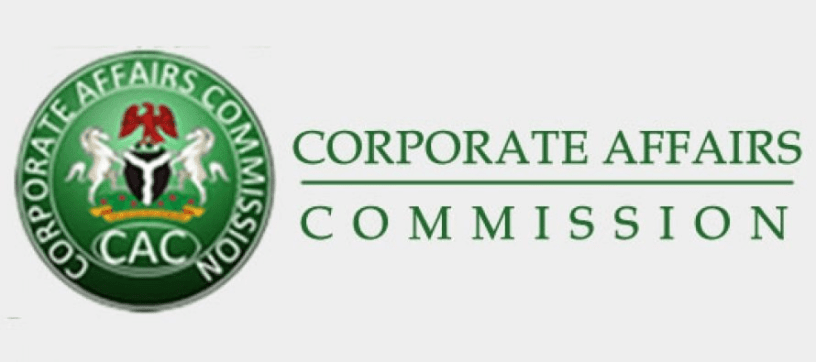The AMCON Amendment Bill seeks to give clarity on the provisions in the Act and to enhance AMCON’s debt recovery capabilities thereby improving supporting regimes for enforcement. The Bill is seeking to amend the Act by creating sinking funds required to meet its debt securities.
AMCON was created for the purpose of efficiently resolving the Non-Performing Loan (NPL) assets of Nigerian banks and other related matters. By the AMCON Act 2010 enacted by the National Assembly of the Federal Republic of Nigeria, the corporation is empowered to dispose of managed assets of Nigerian banks.
The amended AMCON Act was enacted on 29th July 2019 and it represents the second amendment of the AMCON Act which comprises of 24 sections. The amended sections are Sections 6, 10, 19, 31, 33, 34, 35, 39, 43, 45, 47, 48, 49, 50, 51, 52, 53, 55, 60 and 61. In addition to the amended sections of the AMCON Act, new sections were introduced which include Sections 33A, 50A and 50B.
Key Features of the Bill
1. Tracing and tracking debtors’ hidden funds.
AMCON may place any bank account or any other account related to a debtor under surveillance. All said bank accounts of the individual debtors and their companies will be monitored for the effective tracing and recovery of debts.
2. Naming and shaming recalcitrant debtors and making contracting with government subject to good standing with AMCON.
3. Holding selling EFIs to their loan sale obligations and giving teeth to claw back rights.
4. Checkmating debtors’ legal gymnastics and exploitation of legal technicalities to frustrate recovery.
5. Fast tracking the hearing and determination of AMCON cases.
In essence, where a debtor or other party brings an action against AMCON in a competent court, until a final decision is made, no order of attachment can be made against AMCON.
6. Enhancing AMCON’s rights over collateral securing EBAs from securing interest to legal title.
7. Fine-tuning AMCON special powers.
Objectives of the Bill
To clarify the restrictions placed on the member of the board or any employee of AMCON regarding an involvement in the purchase of assets acquired by AMCON.
1. To clarify the effect of AMCON’s acquisition of Eligible Bank Assets (EBA) from Eligible Financial Institution (EFI), in terms of the powers, rights and obligations of the EFI in relation to the purchased EBA.
2. To ensure that an action in court does not restrict the vesting of an EBA in and the assignment of relevant contracts relating to the EBA to AMCON.
3. To extend the limitation period for any cause of action relating to any debt owed to AMCON by its acquisition of an EBA.
4. To regulate and properly define the powers of a receiver appointed by AMCON for a debtor company whose assets have been charged, mortgaged or pledged as security for an EBA acquired by AMCON.
5. To ensure that AMCON is exempted from the provisions of the Investment and Securities Act (“ISA”), in addition to the Capital Gains Tax Act, Companies Income Tax Act and the Stamp Duties Act; and
6. To establish the Banking Sector Resolution Cost Fund to ensure that AMCON is able to meet its obligations arising from debt securities issued by AMCON pursuant to the AMCON Act and would be utilized if AMCON if AMCON is unable to meet such obligations as and when due from its resources including the proceeds of sale and management of EBA it acquires from EFI.
Section 6 of the AMCON Amendment Bill Act seeks to amend section 60 of the AMCON Act as it relates to the Nigerian Capital market which will not be regulated by the ISA. Section 6 of the AMCON Amendment Bill thus provides that Section 60 will be amended as follows:
a) The deletion of the existing head notes and replacing same with the words Exemptions Granted to the Corporation; and
b) Inserting a new paragraph (c) as follows:
c) Investment and Securities Act”
Section 60 of the AMCON Act prescribes that AMCON is exempted from the application of the Capital Gains Tax Act, the Companies Income Tax Act, and the Stamp Duties Act. The proposed amendment to Section 60 further seeks to exempt AMCON not just from the taxes and transaction fees imposed pursuant to the ISA, but from also complying with the entire provisions of the ISA.
This total exemption is not advisable because the ISA makes provision for the rules and laws that govern and regulate the capital Market. AMCON is an issuer primarily in bonds and is also potentially a major participant in securities lending as stipulated by the AMCON Act, and these activities are extensively regulated by the provisions of the ISA.
Part XV of the ISA deals with the borrowing by the Federal, State and Local Government and their agencies and regulate activities involving bonds. Part X of the ISA deals with the conduct of Securities business, under which securities lending is regulated.
To exempt AMCON from the provisions of the ISA will mean that the bonds issued by AMCON will not be regulated by any legislation since the AMCON Act does not have provisions regulating the issuance and dealing in bonds.
The exemption will also make it difficult for the capital market players to deal in AMCON bonds since the players in the capital market will be subject to the ISA whilst AMCON will not. This could lead to conflicting policies regarding actions that can be taken in respect of the AMCON bonds. This is the same situation with securities lending, and this is governed by the ISA, and there are rules issued in respect of securities lending by both the Securities and Exchange Commission and the Exchange.
Based on the foregoing it is suggested that the specific areas in the ISA such as transactional costs, tax and regulatory fees which AMCON wants to be exempted from should be explicitly stated in Section 6 of the AMCON Amendment Bill rather than a blanket exemption from the ISA.
Benefits of the AMCON Amendment Bill
The AMCON Amendment Bill sure has a whole lot of benefits. Additionally, it has created an alternative source of funds which AMCON can utilize to meet its obligations under the AMCON Act.
The AMCON Amendment Bill took steps to clarify the scope of AMCON’s powers regarding the acquisition of EBAs.
The aim of the relevant provisions was to ensure that AMCON is able to exercise its powers to achieve the intendment of the Act without unnecessary interference with its ability to do so. The Amendment Bill states that upon AMCON’s acquisition of an EBAs from an EFI, the Eligible Financial Institution’s obligations in relation to the EBA will remain with the EFI whilst AMCON is given the power to exercise rights in relation to the EBA. Additionally the Bill ensures that there are no legal impediments by any action in court restricting the vesting of an EBA in and the assignment of relevant contracts relating to the EBA to AMCON. Furthermore, issues involving statutes of limitation relating to debts owed to AMCON by its acquisition of an EBA has been addressed by the Bill and ensures that for the purposes of the limitation period, time will only begin to run and the cause of action deemed to arise, from the date of the purchase of the EBA.
Finally, the Bill has ensured clarity on the scope, powers and reduces the possibilities of litigation over the same by creating detailed provisions to regulate and properly define the powers of AMCON, where it acts as receiver appointed by AMCON for a debtor company whose assets have been charged, mortgaged or pledged as security for an EBA acquired by AMCON.
Furthermore by the Bill, the Federal Government will have the requisite powers it has to establish the Banking Sector Resolution Cost Fund and would ensure that the funds in the Banking Sector Resolution Cost Fund be utilized by AMCON if AMCOM is unable to meet its obligations at the appropriate time.
The Bill tends to targets debtors that are able but unwilling or refusing to pay and who hide their funds, financial and commercial information away from AMCON to frustrate recovery of the said debt. Section 6(1) (i) (iii) and new Section 50A(1).
By virtue of Section 50A (4) it gives a Comprehensive disapplication of banking secrecy laws and bankers confidentiality rules wherein AMCON may additionally apply to court ex parte to compel compliance and the court except where it sees a good reason to the contrary is required to make order and award cost of a minimum of N 5million. Section 50A (3), Section 6(1) (ua) (i) & (ii), Section 6(1) (ua) (i) & (iii), Section 50A (1), Section 50A (2).
The Directors of defaulting EFI are criminally liable to 3 years imprisonment under the new bill, Surveillance and access to debtors banking, financial and commercial information and BVN from banks by Ex parte order of FHC, access to debtors computer systems for the purpose of locating debtors funds by ex-parte order of the FHC, requiring any EFI by written notice for details of debtor’s bank balances and investments by way of deposits and financial instruments and a fine of N 10m and additional N 50,000 for each day of default.
By Virtue of Section 50B(1), 50B(2) it prescribes rules or contractual obligations regarding confidentiality by empowering AMCON to publish a list of recalcitrant debtors in national daily/newspaper together and to furnish procuring entities with copy of published list.
Section 6(6) and new Section 50B (2) imposes an obligation on FG and Federal MDAs to seek AMCON clearance before contracting with or making payments to recalcitrant debtors on the list furnished.
The Bill in Section 50B (3) Further prohibits procuring entities from awarding contracts to, or conducting business with, or making payments to debtors in the published list without AMCON’s prior written concurrence, and without satisfying themselves that any condition attached to AMCONs concurrence has been met.
Taking a critical look at Section 31(2), Section 31(7), Section 31(6) Section 31 (3), Section 31(4) and Section 31 (5), AMCON is empowered to demand from selling EFI’s, their directors or officers, delivery of information, books, accounts, records and documents in relation to acquired EBAs, and to make defaulting EFI’s liable upon demand by AMCON, to make a full refund.
It also mandatorily obligates the immediate debit and defaulting EFI the purchase price with interest, Criminalizes failure by directors or officers of EFIs to comply with the demand for delivery or furnishing of false or misleading information, books, accounts, records or documents {6months imprisonment. Furthermore, it also makes power to demand delivery applicable to EBA purchased before the enactment of the 2019 Amendment, and imposes fines in favour of AMCON for failure to comply with the demand for delivery of necessary documents on the acquisition of EBA {fine of N 1million+ N 50,000 for each day of default; EFI, directors and officers are severally liable for delivery of false or misleading information {EFI to pay fine of N10million, Directors/Officers N2million} to AMCON.
In Section 33A, Section 53 (7), Section 34 (6), and Section 35 (5) of the Bill seeks to checkmate debtors’ legal gymnastics and Exploitation of Legal Technicalities grant of immunity to AMCON, its directors and officers against action or proceedings by “reason only” of EBA acquisition and cessation and abatement of any such existing proceedings. The imposition of this condition for grant of stay of proceedings, stay of execution/injunction pending appeal and leave to appeal {all injunctive reliefs will be on condition of the deposit of claimed sum into an interest yielding account in the name of the registry of the relevant court}, Limiting remedy to a debtor to monetary compensation. Total disapplication of the statute of limitation in AMCON debt recovery and debt realization matters {as statute of limitation does not apply to EBAs purchased by AMCON. See the decision in MYEKO NIGERIA LTD v AMCON (2019) LPELR – 47643 CA.
Section 53 (1) and (3) requires the heads of courts, the president of the Court of Appeal and the Chief Judge of Nigeria to issue special practice directions exclusively for the expedited and accelerated hearing of AMCON matters and also Set time limits for the determination of AMCON matters: At the High Court, 6 months from filing fresh action while pending matters same 6 months form enactment of 2019 Amendment} – new Section 53 (3); Court of Appeal & Supreme Court- 60days- new Section 53 (5).
The Bill in Section 53(1) further mandatorily requires heads of courts to designate one or more special courts to exclusively hear and determine AMCON related matters speedily.
The Bill further enhanced AMCONs right over collateral securing EBAs from security interest to legal title.
Section 34 (1) (a) and (4), shows there were difficulties experienced in exercising the power of sale attending security interest acquired upon acquisition of the EBAs by AMCON. The amendment provides a departure from the regime of the old Section 34 which focused on vesting of security interest hitherto held by EFI in AMCON given that there is unclear language of reference to vesting rights of EBA in the previous AMCON Act. The amended Act expressly provided for vesting legal title to acquired EBAs and in the collateral securing such acquired EBA, and vesting power of sale, possession, management etc., to AMCON to exclusion of all other creditors notwithstanding that only equitable security exists in such collateral.
The Bill further provided AMCON’s special powers, to wit,
RECEIVERSHIP
POSSESSION & FREEZING ORDER (SEC 49 &50)
BANKRUPTCY & WINDING UP PROCEEDINGS
POWER TO APPOINT SPECIAL PROSECUTOR
SUBSEQUENT CHANGES IN THE 2019 AMENDMENT ACT
Section 4 inserted a new subsection (2) – (5) which indicates the need for the prior consent of the AGF to enforce/execute money judgment against AMCON and protection against interim or interlocutory attachment of AMCON’s funds in any bank. Section 12 also has a new subsection (2) which introduces the Certificate of Judgment as a registrable instrument. Section 21 now has a new subsection (1) which vests the FHC with exclusive jurisdiction to try criminal offences under the Act.
Additionally, to confirm its financial commitment to the proposed Banking Sector Resolution Cost Fund, the Federal Government through the Central Bank of Nigeria, will contribute at least the sum of N50, 000, 000, 000.00 (Fifty Billion Naira) on an annual basis.
This amounts to approximately N 750, 000, 000, 000.00 (Seven Hundred and Fifty Billion Naira) over the tenor of fifteen (15) years. This step no doubt ensures that the proposed Banking Sector Resolution Cost Fund has available funds to meet its obligations as and when due. Furthermore, the amended Act recognizes the drive to strengthen the capabilities of AMCON, and it imposes an annual levy in an amount equal to fifty (50) basis point of the EFI’s total assets on ??.
The Effect AMCON Act has on the Nigeria Capital Market.
The aftermath of the global financial meltdown and the Nigerian Banking crisis saw the Exchange’s All share index (ASI) drop from a peak of about 66, 000 points in March 2008 to less than 22, 000 points by January 2009, wiping out over N 8 trillion (or around 70 percent) of the total capitalization of the Exchange within this period.
As a consequence of the above, a number of stock broking firms had no-performing margin loans, which consequently were acquired by AMCON as EBA’s from various EFI’s in line with Section 5(e) of the AMCON Act.
AMCON purchased these margin loans from the EFI’s for about N 42.6billion but the value of the underlying assets or collateral was worth about N19.6 billion. In furtherance of AMCON’s clean-up of the banking sector, AMCON exercised its powers under Section 6(5) of the AMCON Act and offered forbearance of about N22.6 billion on the margin loans of eighty four (84) stock broking firms.
The forbearance has enabled the capital market regain some of its vibrancy which will ultimately have a positive impact on the wider economy.
Furthermore, in line with its powers on Section 6(a) of the AMCON Act, AMCON issues bonds and other debt instruments as consideration for the acquisition of EBA’s. The tranches were listed on the Exchange with a total face value of N 1.7billion.
The AMCON Act has also created the enabling environment for the trade in bonds offered by AMCON, investment securities with collateral and securities lending activities. The Exchange notes that securities lending is a key initiative to deepen the Nigerian Capital Market.
Furthermore, Clause 21(a) of the Guidelines for the operations of the Asset Management Corporation of Nigeria (15 November 2010) recognizes that trading in Managed Assets should be carried out on the floor of the Exchange.
AMCON has made a significant impact in the Nigeria Capital Market. A breakdown of the top (5) Sectors in which EBA’s originate from and which represents 75.35% of all EBA’s purchased by AMCON shows that the capital market accounts for 17.93% which is the third highest sector. Others are Oil and Gas (27.23%), General Commerce (18.49%), Manufacturing (6.24%) and Finance and Insurance (5.47%).
Conclusion
The stringent provisions of the Act is a welcomed idea as the increased rate of indebtedness and debt profile is affecting the economy. The gains of the Bill cannot be overemphasized as AMCON will have a source of funds to meet its obligations under the AMCON Act. There is a need to revamp the culture of diligent liquidation of loan facilities granted as at when due to saving our economy from total collapse as spearheaded by this AMCON Amendment Act, 2019.
Definition of Terms/Acronyms
Amendment: A minor change or addition designed to improve a text, piece of legislation, etc.”an amendment to existing bail laws”
AMCON –Asset Management Corporation of Nigeria
EBA – Eligible Bank Assets
EFI – Eligible Financial Institution
CBN – Central Bank of Nigeria
Notes
The NSE’s Perspective on the AMCON Amendment Bill, February 18, 2014
AAA Chambers – The Revised AMCON Debt Recovery Approach vis-à-vis The AMCON Special Powers- A Critical Review of AMCON Amendment Act 2019, 17 March 2020





